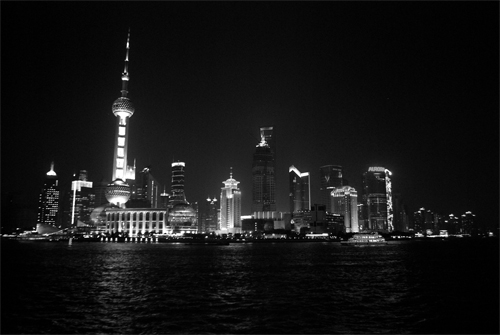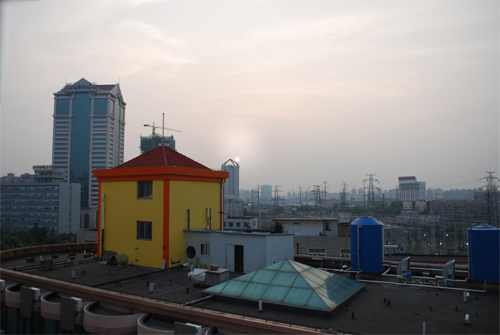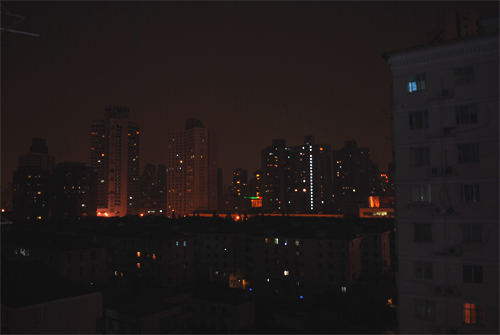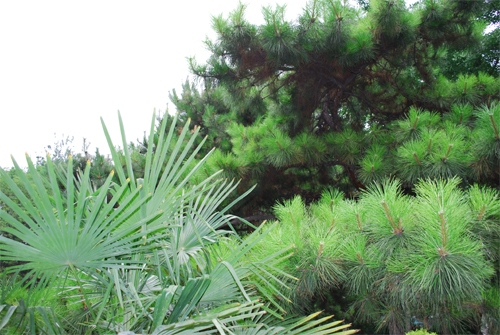September 4, 2008
Their going hence even as their coming hither.
This summer I returned to China, but unlike the past few trips I’ve made, I spent most of my precious June, July, and August as an unabashed tourist. Some interesting things had been happening in China before I flew into Shanghai with a mountain of luggage and a huge Nikon D-whatever. Some interesting things happened while I was there. And some interesting things continue to happen as I sit in front of my MacBook uploading photos and eating water crackers.
As I have my late night snack and type this blog post, McCain’s acceptance speech at the RNC blasts from our television. Which is very much déjà vu, because while I was typing a blog post in China and snacking on cheap Shanghai scallion crackers, I listened to Jacques Rogge deliver the standard world-harmony-amazing-athletes-Olympic-spirit speech during closing ceremonies on August 25th. I’m not so politically apathetic that I don’t bother to distinguish between the two speeches, but very generally speaking and if I zone out just enough, I just hear a lot of well-wishing, a lot of delirious cheering and the occasional interjection of a catchy slogan, and most of all, many many many many promises of unity.
This abstract unity manifested itself everywhere this summer, primarily because of a little event called The Olympics. There is the bordering-on-terrifying patriotism of so many native Chinese. There is the pride of various countries’ tourists as they watch their athletes break world records. There is particular unity among critics–an event like the Olympics can partition thus–those who hate the weather in Beijing, those who hate the lack of attention the Tibet/Mongolia/Xinjiang issues receives from the Chinese media, those who hate the idea of the Olympics in general, and those certain indignant wrathful people who hate everything regardless of time or place.
As a cynical tourist, life is kind of hard, since cynics are surrounded by this cloud of highly-opinionated irony and hypocrisy. Maybe the Chinese “government” should do a better job in “dealing with” Tibet (Autonomous region…). Maybe the air is truly shitty and the sun is obscured by this impenetrable smog. Maybe the aftermath and the rescue process in Sichuan is really a continuation of disaster but the media conveniently chooses uplifting Reader’s Digest-type stories to report on the ten different strictly government-filtered channels of CCTV. Maybe the Olympic athletes are only jumping, or running, or swimming, or shooting, or kicking their way to million-dollar commercial deals and early retirement from the monotony of professional athleticism. Maybe the Chinese female gymnasts are really only SIX or SEVEN but in fact appear much older than their true ages.
I would think all of the aforementioned, if not for the fact that my front row ticket to see Usain Bolt’s 100-meter world record cost about 200 American dollars. And the minute fact that I was buying groceries and listening to my iPod and doing other very normal things in the very city hosting the Olympics. Inevitably the Olympic atmosphere (or the ubiquity of “Beijing 2008” Olympic flags) began to brainwash me. I drifted in and out of a scary mode of patriotism and nationalism. I thought the Fuwa, the five strategically marketed Olympic mascots, were cute. That was my lowest point. Or shall we say farthest away from cynicism.
For Bolt, I cheered and cheered and cheered. I told everyone I knew that I had tickets, authentic tickets to a track event. I took about a thousand pictures of this steel thing, also known as the National Outdoor Stadium. I took no less of a tofu-shaped blue bubbly thing, also known as the National Aquatics Center, also known as place where Michael Phelps won eight gold medals and hugged his mother. I even bought a Brazil jersey, expressly for the purpose of blending in at the Brazil vs. Nigeria football match. Who knows what else I did. Everything sounds out of character in retrospect. I watched the opening ceremonies the night of in a bar and ran around the streets trying to catch a glimpse of the closing fireworks. I bought sixty-dollar baseball hats emblazoned with nothing but a tiny Beijing 2008 logo.
Maybe my mood is exclusively influenced by location.
 Filed by Shan Wang at 11:57 pm under China,Random musings
Filed by Shan Wang at 11:57 pm under China,Random musings
 3 Comments
3 Comments






